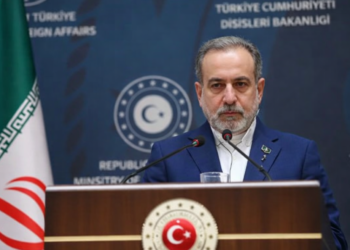In a pre-dawn vote that capped an intense all-night session, the Republican-led US Senate approved a sweeping $9 billion rescissions package, targeting key foreign aid programs and public broadcasting funds. The 51-48 vote, conducted just before sunrise on Thursday, represents a major victory for President Trump’s austerity agenda and sets up a high-stakes showdown with the House of Representatives before Friday’s deadline.
Global Health Programs and Rural Radio Stations Bear the Brunt
The approved Senate bill axes approximately $8 billion from international aid, including critical global health initiatives administered by USAID, while stripping $1 billion from the Corporation for Public Broadcasting—a move that disproportionately affects rural communities dependent on NPR and PBS stations. Notably spared was PEPFAR, the landmark HIV/AIDS relief program, after Republicans compromised to preserve its $400 million funding following intense debate.

The vote revealed cracks in Republican unity, with Senator Lisa Murkowski of Alaska joining Democrats in opposition, citing concerns about the public broadcasting cuts’ impact on rural America. “These stations are lifelines for our most remote communities,” Murkowski argued during floor debates. The other Republican defector has not been named, highlighting the delicate balance of power in the closely divided Senate.
House-Senate Showdown Looms as Clock Ticks on Rescissions
The bill now returns to the House of Representatives, where Speaker Mike Johnson expressed dissatisfaction with the Senate’s modifications, particularly the restored PEPFAR funding. “We expected them to pass our version unchanged,” Johnson told reporters, setting the stage for last-minute negotiations. Both chambers must reconcile their versions before Friday’s expiration of the rescissions authority or lose their chance to claw back these funds entirely.
This eleventh-hour legislative scramble represents what Senate Majority Leader John Thune called “a small but critical step toward fiscal responsibility.” However, critics warn the cuts will undermine American soft power abroad while depriving heartland communities of essential public media services. As the Friday deadline looms, all eyes turn to whether Congress can bridge its internal divides to deliver on President Trump’s promise of reduced federal spending—and at what cost to America’s global health leadership and domestic information infrastructure.
The Hidden Winners and Losers in the $9 Billion Budget Battle
While PEPFAR advocates scored a temporary reprieve, dozens of proposed amendments to protect other international aid programs failed. The final package still cuts deeply into humanitarian assistance, global health security, and development programs, even as it preserves certain pet projects. Meanwhile, public broadcasting stations—particularly those serving conservative rural areas—face existential threats from the proposed funding reductions, creating strange political bedfellows in opposition to the bill.
What Comes Next for the Rescissions Package?
With less than 48 hours to reconcile differences, congressional leaders must navigate between hardline fiscal hawks demanding deeper cuts and moderates concerned about the real-world impacts. The outcome will test both the Republican majority’s cohesion and the Trump administration’s ability to deliver on its promise to “drain the swamp” of federal spending.

















